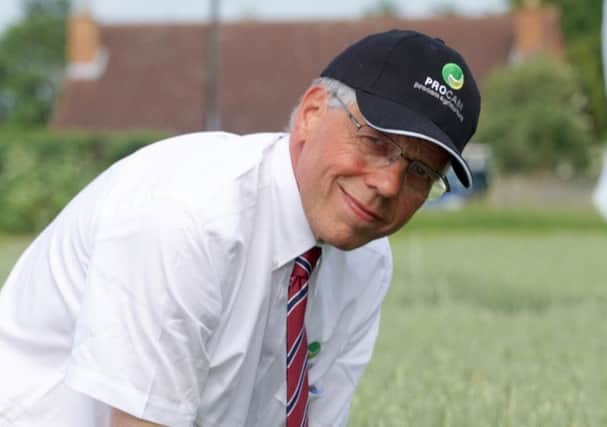Soils need investment to protect crop yields


Speaking at ProCam’s ‘What Makes a Healthy Soil Conference’ at the Great Yorkshire Showground in Harrogate, the company’s technical director Dr Tudor Dawkins said the weather over the last few years had accelerated damage to the UK’s soils and urgent remedial investment was now required.
“It’s very likely that a significant component of the yield plateau we’re now experiencing is down to deeper subsurface compaction, a lack of investment in drainage systems in recent years and an increase in biologically challenged soils,” Dr Dawkins said.
Advertisement
Hide AdAdvertisement
Hide Ad“The exceptional variability in yields achieved at harvest 2014, with wheat ranging from 3.9 to 13.9t/ha and oilseed rape from 1.9 to 5.5t/ha, could well have the rapidly deteriorating soil conditions at their core.”
Yorkshire producers had better soils than many further south, he said, but basic principles of soil management now need to be followed to protect future yields.
“Crops respond in different ways to soil problems with winter wheat, for example, being more tolerant of compaction than oilseed rape, but losses in wheat can still be 15-20 per cent and as high 60 per cent in beans.
“The crop’s initial response to soil structure issues is evidenced by poor plant emergence and stunted root growth which can lead to reduced plant populations, but this is just the start of the problems.”
“Waterlogging alone has been shown to affect yields by up to 2t/ha so checking drains and taking remedial action is a good starting point in creating better soils.”